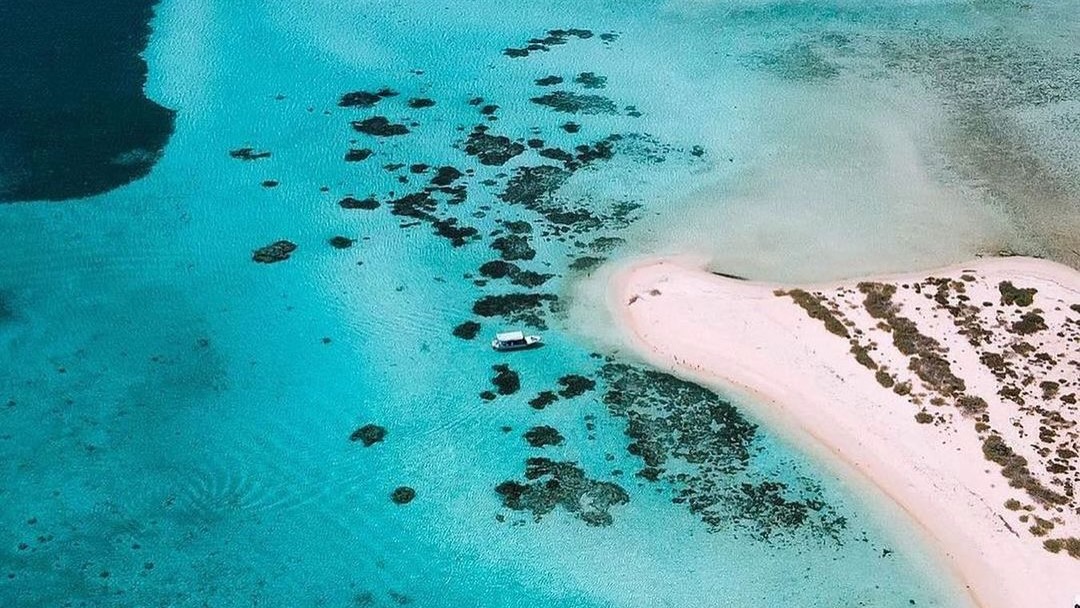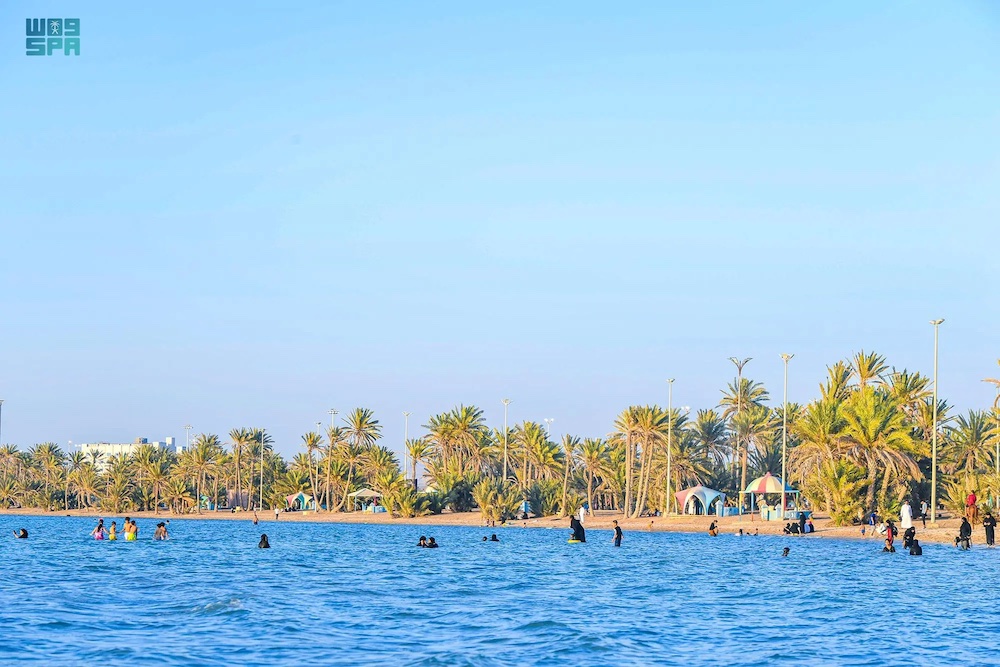LONDON: Saudi Arabia’s Umluj Beach has been ranked among the top 100 beaches in the world in the Golden Beach Awards 2024, alongside the likes of Bora Bora and Copacabana.
BeachAtlas, a London-based startup, used an algorithm to shortlist 100 beaches according to six criteria. The locations were then put to a vote by a panel of travel experts and influencers who provided their personal insights to refine and help rank the list.
Located on the Red Sea coast in the northwest region of Tabuk Province, Umluj consists of 104 islands, forming an archipelago, and is one of the programs of the Red Sea Project — a megaproject that forms part of Saudi Vision 2030.
Placed at No. 41, BeachAtlas said Umluj Beach “is often compared to the Maldives for its serene, beautiful beaches lined with white sand and soothing palm trees.

Located on the Red Sea coast in the northwest region of Tabuk Province, Umluj consists of 104 islands. (BeachAtlas)
It added: “This spot offers a perfect retreat for those looking to unwind beside the crystal-clear waters of the Red Sea.”
The criteria for the list included classic beauty; diversity, equity and inclusion; party and lifestyle; sense of community; natural diversity; and cultural significance.
BeachAtlas said: “Ideal for both relaxation seekers and nature enthusiasts, Umluj Beach draws visitors with its postcard-like scenery, making it a favorite among both locals and tourists.
“The vibrant marine life is easily visible in the transparent waters, adding to the allure of this picturesque destination.”

Famous for its serene landscape, white sandy beaches and pristine turquoise waters, Umluj has been described as the Saudi Arabian Maldives. (SPA)
The UAE’s JBR Beach in Dubai, which “blends city vibes with beach relaxation,” made the top 10, coming in at No. 8.
“With golden sands and clear waters, it offers water sports, camel rides and more,” said BeachAtlas.
It added: “The Walk, its lively promenade, features shops, eateries, and street entertainment. It’s a perfect spot for those who love the beach but want the thrill of city life too. A must-visit in Dubai for fun and sun.”
Sharm El-Sheikh, located at the tip of the Sinai Peninsula in Egypt, ranked No. 69 for being a “diver’s paradise and a sun seeker’s sanctuary.”

BeachAtlas added: “Renowned for its crystal-clear waters, vibrant coral reefs, and a diverse underwater ecosystem, this resort town is a gateway to exploring the Red Sea’s marine wonders.”
Qatar’s Inland Sea Beach ranked 89 on the list, its location between desert dunes and ocean waves creating “a remarkable ecosystem.”
BeachAtlas said the location provides “a peek into the past, rich with fossils along its shores.”
It added: “It also holds tales of 19th-century Abu Dhabi pirates, adding a layer of historical intrigue,” while blending “natural beauty and storied history.”














